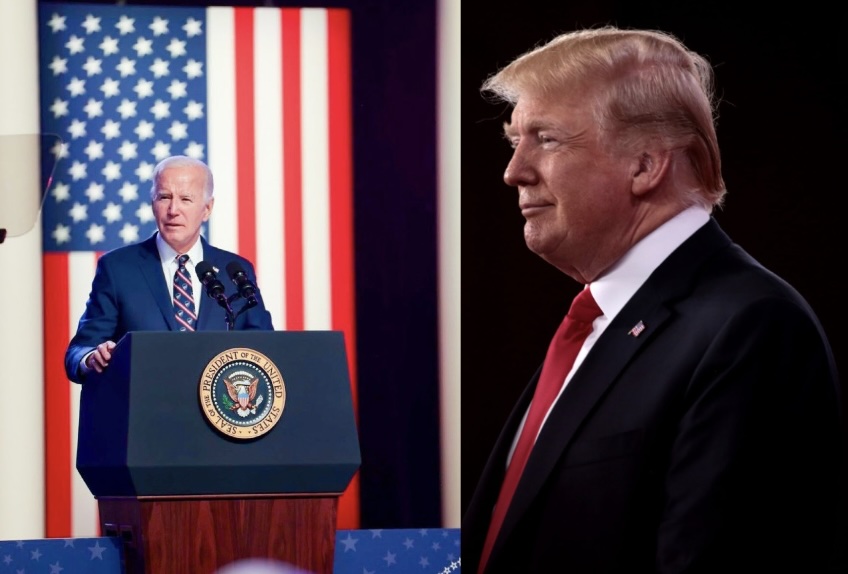As of February 2024, if anyone tells you that the Democrats and Republicans are going to nominate anyone other than President Joe Biden and former President Donald Trump, they’re either not paying attention to the polls, or they’re still getting campaign staffer checks from Nikki Haley. America is getting ready for the most elderly presidential contest in our young nation’s history, only beating the “second most elderly presidential election” in 2020 by 4 years, an election that we’re doing over again between Biden and Trump. If elected, by the end of their second term, Trump would be 82 while Biden would be 86, assuming neither man dies before the end of their term or before Americans cast their ballots in November.
A lot of discourse surrounding the appropriate age for holding political office has been heightened recently, not just because of the election but also due to the February special counsel report on Biden’s handling of classified information. The report described Biden as a “well-meaning, elderly man with a poor memory” who had “diminished faculties in advancing age.” This report came the same week Biden referred to Egyptian President Abdel Fattah El-Sisi as the President of Mexico, and the same month, Trump praised the Hungarian Prime Minister Viktor Orbán as a “great leader of Turkey.” No matter what any other publication will tell you, both men aren’t exactly doing great.
The age of both of these presidential candidates is an issue, and according to an October 2023 poll by Pew Research Center, the majority of Americans, regardless of political party preference, favor age limits for those holding federal office. I’ll argue against the majority of Americans. While the advanced ages and observed cognitive slip-ups of both Biden and Trump do raise legitimate concerns about their individual capacities to serve effectively as president of the United States, these instances should not serve as a basis for instituting age limits for political office. Implementing a blanket age restriction undermines the democratic principles of choice and equality and disregards the diverse capabilities of many older individuals. It could very well lead to a slippery slope or, worse, a new precedent of discriminatory practices in political candidacy.
The debate over the impact of age on leadership in the 2024 presidential election brings attention to not just the candidates’ physical number of years but also their cognitive abilities and vigor. Determining an appropriate age limit is inherently arbitrary. Physical and cognitive abilities do not decline at the same rate for everyone. While some individuals may experience a decline in certain faculties with age, others maintain high levels of cognitive function and physical health well into their later years. Establishing a one-size-fits-all age limit does not take into account these individual differences, potentially excluding competent individuals from serving based on arbitrary criteria.
For example, if you go online and watch Bernie Sanders speak and compare him to Biden, regardless of your political opinion and what you think of each man, Sanders, who is also of advanced age and is also one year older than Biden, continues to articulate strong, clear viewpoints and maintain an active role in politics, highlighting the subjective nature of aging. He’s still the chairman of the Senate Committee on Health, Education, Labor and Pensions. He and many other seniors are still sharp, and Sanders still displays continued engagement and clarity in communication, in contrast with concerns about cognitive slip-ups from other senior politicians in the Senate like Minority Leader Mitch McConnell, who is the same age as Sanders. Cognitive capacity cannot be solely determined by age.
If the argument of the arbitrary nature of age limits still isn’t working for you, rather than imposing age limits, a more nuanced approach could involve regular health and cognitive assessments for politicians to ensure they are fit for office. Health assessments could be a more equitable way of ensuring that all politicians, regardless of age, meet the physical and cognitive requirements of their demanding roles. I’m speculating, but I’m sure plenty of politicians under the age of 60 would fail that test.
At the heart of a democratic system is the principle that the electorate should have the freedom to choose their representatives without undue restrictions. Imposing age limits on candidates could easily be seen as undermining this principle by restricting voter choice. Even if you, like millions of Americans, think Biden and Trump are both lousy and cognitively impaired, democracy still thrives on the idea that voters are capable of making informed decisions about who is best suited to represent their interests, regardless of the candidate’s age or anything else about their appearance or character. By setting age limits based on numerical years, the system implicitly undermines the electorate’s judgment and autonomy by restricting voting for candidates who otherwise may be qualified and supported by a majority of voters.
While concerns about the ages of presidential candidates like Biden and Trump highlight valid discussions about cognitive abilities and effectiveness of leadership, they should not pave the way for age-based restrictions in political candidacy. Such limitations contradict the fundamental principles of democracy and voter autonomy, potentially sidelining competent individuals based on arbitrary criteria. Instead, embracing alternatives such as comprehensive health and cognitive evaluations, with a commitment to transparency, could work to ensure candidates’ fitness for office.
The vice presidency needs to be the ultimate solution to all of this in answering voters’ fears by providing an American safety net regardless of a given presidential candidate’s age or competence. Still, it might be hard for an America stuck with former Vice President Mike Pence or Vice President Kamala Harris to agree.
Andrew McDonald, FCRH’26, is a history and political science double major from Sacramento, Calif.
















































































































































































































